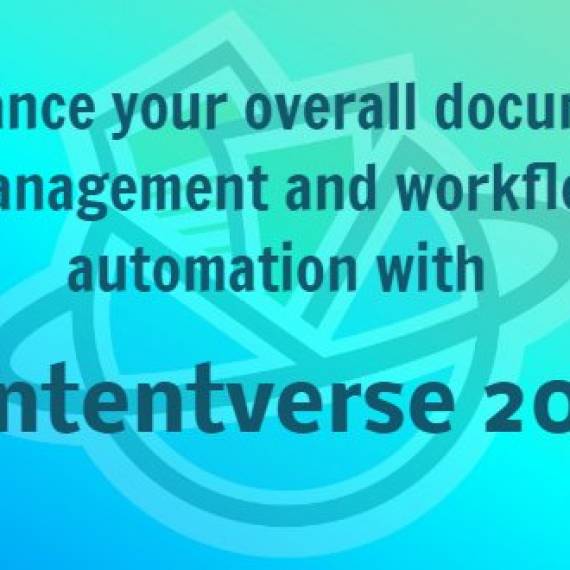The fact that information is driving today’s businesses is widely accepted. The proliferation of paper – and now the rapid growth of digitized storage – is testament to a company’s inherent need to create, use, manage, store, and control the information it requires to run effectively and provide value to its many stakeholders.
But often, while focused on our paperwork and our PCs, while keeping our heads down and our priorities on doing rock star work, we dismiss another powerful type of information that flows through an organization. It’s a subtle form of information that passes on through the relationships we make, the perceptions we hold about other people, and the assumptions they make about us. It’s the attitudes and appearance we deliver about ourselves over time as we live within the company and among others who all seek similar rewards – recognition, merit, influence, and maybe even control. This swirl of informal information is often referred to as office politics.
Workplace Politics Seem Inescapable
Many people try to avoid getting caught up in office politics because, well, they dislike politics. But even those who are avoidant will have to deal with people firmly rooted in the political morass. And as a result, that makes everybody subject to politics. Think of it as a cultural issue… one that has a deep history in the development of corporations.
Rewind to the end of the 19th Century. A German sociologist named Ferdinand Tonnies suggested there is a real tension between wanting a sense of community on the one hand, and a demand for control on the other. At that time, the idea of organizations that used groups of people to achieve economic advantage (corporations and bureaucracies) was just emerging. Here’s the problem: at work, do we put the community first, or ourselves? Sometimes, it’s a good idea to work together. Other times, it’s better to work alone. And, yes, some people see opportunities to take advantage of others for personal gain.


- Climbers. Watch out for the climber. These are the people who will step all over you. It’s all about them – and they probably won’t hide it.
- Hurdlers. The hurdler doesn’t stomp on you like a climber, but instead leaps over you, perhaps using information in a way that is intended to displace you or somebody in a position they are striving for.
- Takers. The taker is a “sponge,” using other people to gain information or knowledge that helps get them ahead. Neither recognition nor reciprocation is their strong suit.
- Check the Box. Not all people aspire to greatness. Some are content to get by. This group does “just enough” to conform to the culture and meet job requirements.
It’s important to remember that these political types do not represent “bad people.” Sure, there may be people who have these traits as well possess as other personality disorders that accentuate behaviors directed toward power and control. But generally speaking, people take on these political roles, or personas, in order to stay productive and take advantage of opportunities within the company.
While it is very difficult to avoid office politics completely, you can be mindful of its presence and act in a way that elevates the way you think about your company and the people in it beyond a simple relationship with another individual.
A Foundation for Ethical Workplace Relationships
Returning to the idea that companies and their political structures are built so heavily on information, consider this: American journalist Sydney J. Harris wrote, “The two words ‘information’ and ‘communication’ are often used interchangeably, but they signify quite different things. Information is giving out; communication is getting through.”
Communication. It’s not just about creating data or delivering an idea. Communication is a method of getting into somebody’s mind, and letting them get into yours. You’ll transmit information, and using things like cues and feedback, you’ll actually make a connection with them.
Want to increase your chances of initiating positive communication, staying above the misinterpretations and machinations of the political culture? Try using an approach like nonviolent communication (NVC), which stresses empathy over conflict. This technique, developed by Marshall Rosenberg, puts compassion and responsibility into a relationship between two people, whether that be at work, home or in society at large. Whether in the boardroom, in a sales negotiation or between two employees in an office cubicle, NVC provides a structure for maximizing the amount and quality of information communicated during a conversation. It also creates the building blocks for positive relationships between people that minimize competition, anger and judgment.
More ways of dealing with office politics include:
- Caring. One of the most powerful ways you can avoid office politics is deeply and sincerely caring about people and the overall success of the company for which you work. By doing so, you transcend personal and political relationships, aiming your actions and values an order of magnitude higher than “political types.” By directly contributing to the success of the business and being responsive to your peers, you help model the very best aspirations of any business culture.
- Managing up and across the organization. Whether you have a “good” boss or a “bad” boss, it is possible to establish a connection that allows you to achieve your goals without completely submitting to workplace politics. This is because it’s in your power to proactively set the direction of the relationship, strategically using emotional intelligence and relationships to influence others. In one sense, there really is not a “good” or “bad” boss. But you may have an insecure boss, a needy boss, an anxious boss, an insightful boss or a creative boss. Find those attributes in your boss that you can enhance or soothe. You can use similar tactics with your peers and other stakeholders throughout the company.
- Focus on the positive. Caring deeply and managing well make it easier to remind yourself and others about the many positive things happening throughout the course of a work week, month or year. Reflecting on and recognizing good work, good behavior and good character put you in a shining light and do wonders for improving employee morale.
In short, one of the best ways to avoid office politics is to commit yourself to actions and behaviors that do not contribute to a toxic culture. Politics often pollutes an organization because of the insecurities, fears and frustrations of individuals within it. Enjoy the work you do, and set an example for others. You just might find that tension transforms into teamwork and a stronger sense of community begins to take hold.
A version of this article was originally published as How to Avoid Office Politics by Jonathan Estrin on November 9th, 2016.











Leave a Comment